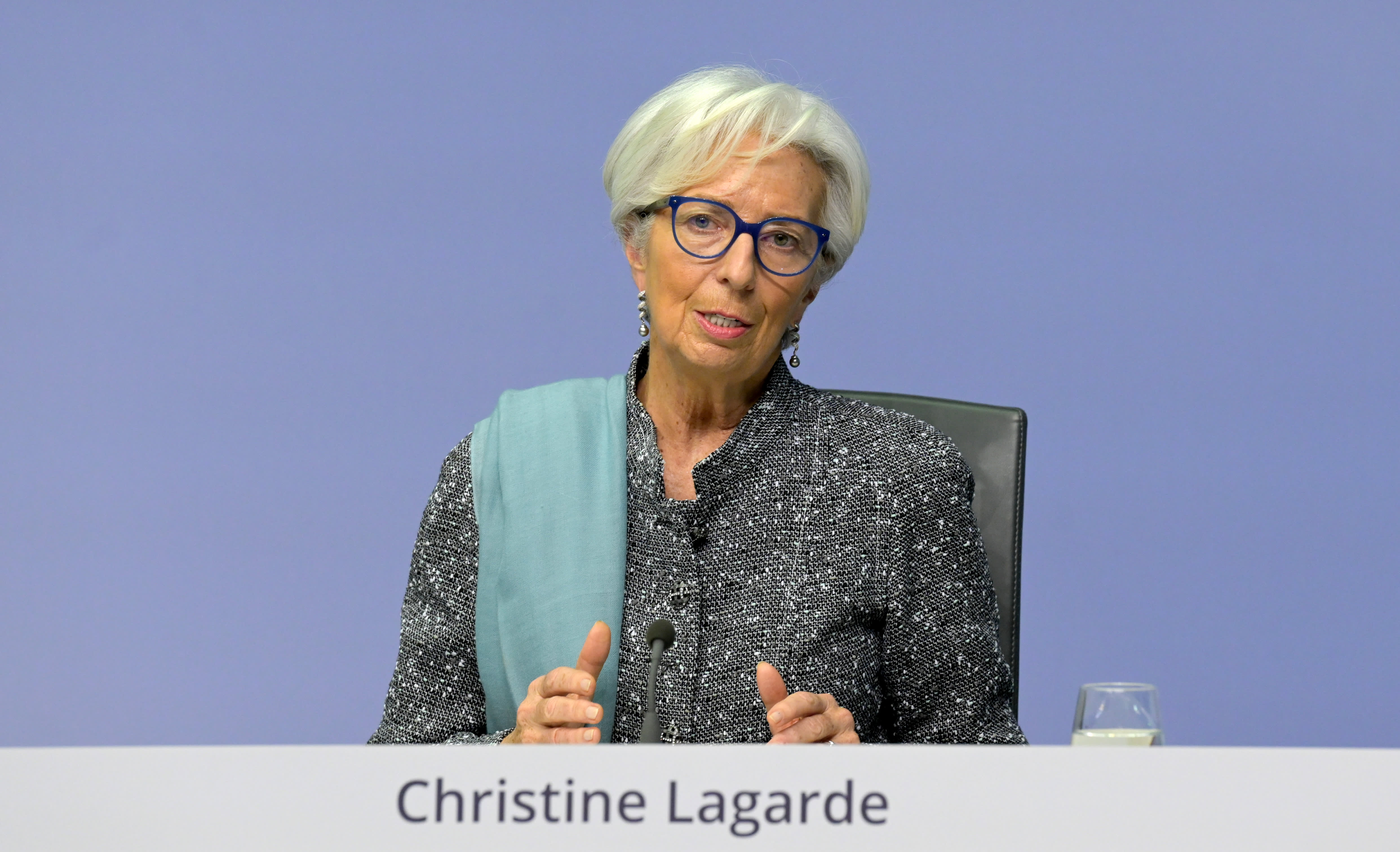
European Central Bank President Christine Lagarde.
Handout | Getty Images News | Getty Images
LONDON — The European Central Bank has said it expects to increase its bond purchases “significantly” next quarter, after borrowing costs rose in the region.
The ECB opted on Thursday to leave its Pandemic Emergency Purchase Program, or PEPP, unchanged, at a total of 1.85 trillion euros ($2.21 trillion) due to last until March 2022.
However, the central bank’s bond purchases in the first quarter have been lower than usual and the Frankfurt-based institution said it expected to ramp up its purchases going forward.
“Based on a joint assessment of financing conditions and the inflation outlook, the Governing Council expects purchases under the PEPP over the next quarter to be conducted at a significantly higher pace than during the first months of this year,” the ECB said in a statement.
Bond yields in the euro zone have been rising since February, following their United States counterparts higher after President Joe Biden announced a massive fiscal stimulus plan. It has led to fears that rising yields could derail the economic recovery in Europe by raising borrowing costs for countries already struggling with the coronavirus crisis.
However, markets were reassured by the ECB’s statement Thursday, and bond yields fell in the euro zone. The central bank’s commitment to more purchases will support bond prices and in turn helps to keep borrowing costs lower. Bond yields move inversely to prices.
“The Governing Council will purchase flexibly according to market conditions and with a view to preventing a tightening of financing conditions that is inconsistent with countering the downward impact of the pandemic on the projected path of inflation,” the ECB added in its statement.
Speaking to CNBC earlier this month, ECB member Jens Weidmann said that changes to central bank’s government bond-buying program could be implemented in an effort to calm bond markets.
However, this is a tricky issue for the central bank, which cannot be seen to act directly to address bond yields as this isn’t part of its mandate. Any such moves could spark criticism that it is protecting euro zone governments from market dynamics, and raise expectations that it could always act when yields rise.
The central bank also decided to keep interest rates unchanged.
Economic outlook
Back in December, the ECB forecast that gross domestic product (GDP) in the euro zone would rise by 3.9% this year and 4.2% in 2022. The ECB is due to unveil fresh estimates on Thursday.
But some EU countries remain in lockdown and others have tough social restrictions in place. In addition, the rollout of Covid vaccines has been slow in the region. This could add further pressure on the 19 euro zone economies, and hinder their economic recoveries.
The ECB has called on the various governments to step up their fiscal responses, arguing that the burden cannot lie solely on the shoulders of the central bank. The European Union agreed to an unprecedented level of fiscal stimulus last year, but these funds are only due to be disbursed from this summer onward.
“A bigger fiscal stimulus can contribute to higher business confidence, raise capital formation, boost employment, lift inflation (expectations), and, if central banks contain the rise in nominal yields, lower real rates can further support growth,” Florian Hense, economist at Berenberg, said on Tuesday in a note.




